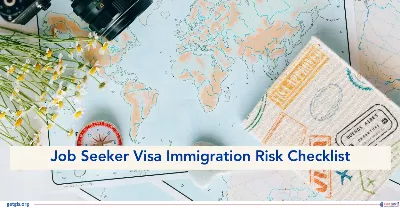Healthcare System in Canada: Guide for Indian Immigrants
Updated On
-
Copy link
-
-
Your 2025 guide to evaluate healthcare in Canada as an Indian immigrant. Discover provincial health plans, find doctors, what's covered and the benefits of Canada's healthcare system.
Limited-time offer : Access a free 10-Day IELTS study plan curated for you

Table of Contents
- Health Care in Canada: Access to the Universal Health Care System
- The Canada Health Act
- Healthcare System in Canada for Indian Immigrants in 2O25: Provincial Health Plans
- What's Covered and What's Not in Provincial Health Plans
- Key Benefits of Canada's Healthcare System in 2025
- Government Initiatives for Developing the Healthcare System in Canada 2025
- How to Find a Healthcare Provider?
- Thinking of Moving Abroad? Here’s How ����ÿ�մ��� Can Help
The Universal Healthcare system in Canada, also known as Medicare, gives permanent residents and citizens access to a wide range of medical services. Starting in 2023 and onwards for the next 10 years is committed over $200 billion on its “Working Together to Improve Healthcare for residents in Canada”.
Backed by government funding, healthcare in Canada removes financial barriers, ensuring top-quality care for all, regardless of income or health barriers. This article will further navigate you through the Healthcare system in Canada for Indian immigrants and everything needed to understand how to access healthcare in Canada to ensure they receive the care they need.
Health Care in Canada: Access to the Universal Health Care System
Canada has a universal healthcare system that is funded through taxes, which means that any Canadian citizen or permanent resident can apply for public health insurance.
In general terms, with public health insurance, you won’t have to pay for:
-
Most health care services
-
emergency medical services, even if you don’t have a health card (there may be some restrictions depending on your immigration status)
The Canada Health Act
The Canadian Health Act (CHA) is federal legislation that guarantees publicly funded healthcare in Canada, promoting resident health and ensuring access to services without financial barriers.
Immigrants need to know about the Canada Health Act because it can help immigrants understand their rights and entitlements regarding healthcare coverage. They will also be aware of the potential barriers to accessing healthcare that they may face.
The Five Principles of the Healthcare Act include:
1- Comprehensiveness: The comprehensiveness criterion of the Act requires that the health care insurance plan of a province or territory must cover all insured health services provided by hospitals, physicians, or dentists (i.e., surgical-dental services that require a hospital setting).
2- Accessibility: The accessibility criterion intends to ensure that insured persons in a province or territory have reasonable access to insured hospital, medical and surgical-dental services.
3- Portability: Residents moving from one province or territory to another must continue to be covered for insured health services
4-Universality: The accessibility criterion intends to ensure that insured persons in a province or territory have reasonable access to insured hospital, medical, and surgical-dental services on uniform terms and conditions
5-Public Administration: The public administration criterion requires provincial and territorial health care insurance plans to be administered and operated on a non-profit basis.
Healthcare System in Canada for Indian Immigrants in 2O25: Provincial Health Plans
Each province and territory has a different health plan that covers different services and products. Each plan has some important differences, so make sure you know what your plan covers. Once your province or territory adds you to their health system, you’ll get a health card. Show this card at hospitals or medical clinics to get non-emergency services.
Here is a detailed breakdown of healthcare access information for specific provinces, customized for Indian immigrants in 2025:
|
Province |
���������������������ٲ��� |
How to Apply |
Processing Time |
Temporary Coverage |
|
Ontario (OHIP) |
Permanent residents, work/study permit holders with full-time status (≥6 months) |
Apply in person at Service Ontario with: - Proof of status - Proof of residency - Identity documents |
Immediate coverage upon approval |
No formal temporary coverage, but exceptions may apply for urgent care |
|
Alberta (AHCIP) |
Permanent residents, temporary residents with valid permits (≥12 months) |
Submit in person at a registry or by mail with: - Application form - Proof of residency/status |
5 days (in person) 6 weeks (mail) |
90-day extension available for expiring permits (one-time) |
|
BC (MSP) |
Permanent residents, temporary residents with permits ≥6 months |
Apply online or by mail with: - Proof of status - Residency documents |
Coverage starts after a 3-month wait |
Mandatory private insurance during wait period |
|
General Notes |
- PR cardholders are automatically eligible - Work/study permits often require minimum validity periods |
- Photocopies not accepted for OHIP - Alberta requires original documents for in-person applications |
Varies by province (2-8 weeks) |
Quebec and territories also impose 3-month waits; private insurance is strongly recommended |
What's Covered and What's Not in Provincial Health Plans
Here are some details about what's covered and what's not covered in your provincial health insurance
|
What is Covered |
What is Not Covered |
|
|
Key Benefits of Canada's Healthcare System in 2025
The Canadian healthcare system is publicly funded. The funding is primarily taken through taxes, and while it's considered a single-payer system, it's not administered by one central authority.
Here are the key benefits of Canada’s Healthcare System in 2025
|
����Ա�ھ��ٲ��� |
Details |
|
Universality |
Canada's healthcare system is designed to be accessible to everyone, regardless of income level, employment status, or medical history. |
|
Wide Coverage |
Canada covers a wide range of medical services, including primary care, hospital care, diagnostic testing, and prescription drugs. |
|
High-Quality Care |
The healthcare system is known for providing high-quality medical services with world-class doctors, nurses, and medical facilities. |
|
Lower Costs |
Since Canada's healthcare system is publicly funded, the costs associated with medical care are generally lower. The healthcare system emphasizes education and preventive programs to reduce healthcare costs over time. |
|
Special Care |
Disability care includes providing care to people with chronic medical conditions or special needs. |
|
Peace of Mind |
Canada's healthcare system provides residents with peace of mind, which means there is almost no paperwork or complicated billing involved in accessing medical care in Canada. |
Government Initiatives for Developing the Healthcare System in Canada 2025
Starting in 2025 and beyond, the government of Canada is all set to take some major healthcare initiatives to enhance advancements and innovations in Canadian healthcare, including:
1- Integration of AI: Home to 600+ AI researchers and 3 world-class AI institutes, A. The system in Canada is supported by the Pan-Canadian Artificial Intelligence Strategy – a 5-year, $125 million plan to support research and attract talent in AI, contributing to crucial evolution in our healthcare system.
2- Canada Health Transfer: The Canadian government added a $2 billion CHT top-up in 2023, followed by a guaranteed 5% investment increase per year till 2028.
3- Allocation for Bilateral Agreements: A funding of $25 billion over next 10 years to support shared health priorities, $4.8 billion for next 4 years to support improvements to home and community care, a $3 billion funding over next 5 years to improve safety in long term care, $1.7 billion support over wage increase for personal support works & professions.
4- Improved Digital Health Tools: The Canadian government has recently introduced certain other plans and acts, such as the Nursing Retention Toolkit, the Canadian Dental Care Plan (CDCP), Pharmacare Act, for the betterment of the healthcare system in Canada.
5- The Foreign Credential Recognition Program: The Canadian government is set to invest up to $14.3 million through the Foreign Credential Recognition Program (FCRP) to assist internationally educated health professionals (IEHP) (including job placements, mentorship, etc) to join the Canadian healthcare sector.
How to Find a Healthcare Provider?
Once you have got (or are in the process of getting) your health card, the next step involved is to find healthcare, for which you would need to check your health insurance plan for a list of providers in their network.
|
Particulars |
Details |
|
Family Doctors and Nurse Practitioners |
Provincial Referral Services: Many provinces have services that can help you find a family doctor or nurse practitioner who accepts new patients. For Example, Health Care Connect in Ontario Personal Networks: Ask for any good health practitioners from friends, family, or colleagues for recommendations. |
|
Alternative Walkin |
Walk-In Clinics: The walk-in clinics offer priority care for non-emergency issues. First-come, first-served basis. Telehealth Services: Platforms like Maple and Telus Health allow you to consult with doctors remotely via phone or video. |
Thinking of Moving Abroad? Here’s How ����ÿ�մ��� Can Help
-
Point Calculation: In ����ÿ�մ���, we calculate your points on your behalf to eliminate any chances of rejection or failure.
-
Visa Application: ����ÿ�մ��� helps you to complete your visa application properly and we even train you for your visa interview process, to make your immigration journey easier.
-
Preparation for Language Test: ����ÿ�մ��� offers you expert guidance for your preparation for language tests like IELTS/PTE/CELPIP.
-
Expert Guidance for Each Step of Your Immigration: With ����ÿ�մ���, you rest assured about your immigration journey. We help you to take every step in the right direction to make your immigration journey smooth.
-
Job Search Assistance: At ����ÿ�մ���, you receive complete job search assistance, from CV optimization to mock interviews, everything is covered by ����ÿ�մ���. And we won’t leave you alone until you get your job in your dream country.
So, don’t waste your time thinking about the best time to visit Canada. Start your career in Canada with ����ÿ�մ��� by
Useful Links: Further Reading & Information
Limited-time offer : Access a free 10-Day IELTS study plan curated for you

Frequently Asked Questions
What healthcare services are covered by the government-funded healthcare system in Canada?
How do I access healthcare services in Canada, and what do I need to bring to my appointments?
Can I choose my own healthcare provider, or do I have to see a specific doctor or healthcare professional?
What are the wait times for healthcare services in Canada, and how can I manage them?
Can I receive healthcare services if I am not a Canadian citizen or a permanent resident?
Can I bring prescription medicines to Canada?





